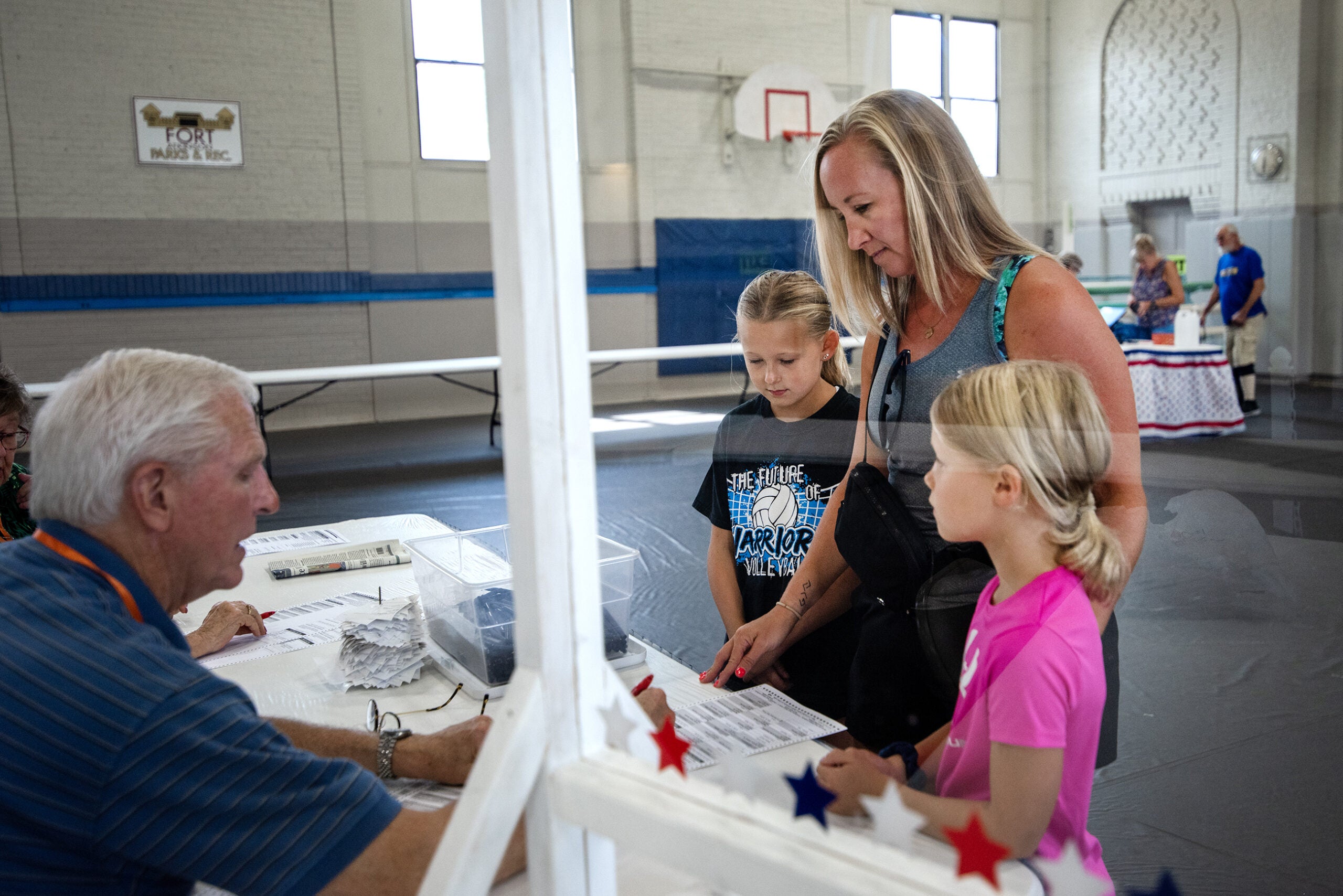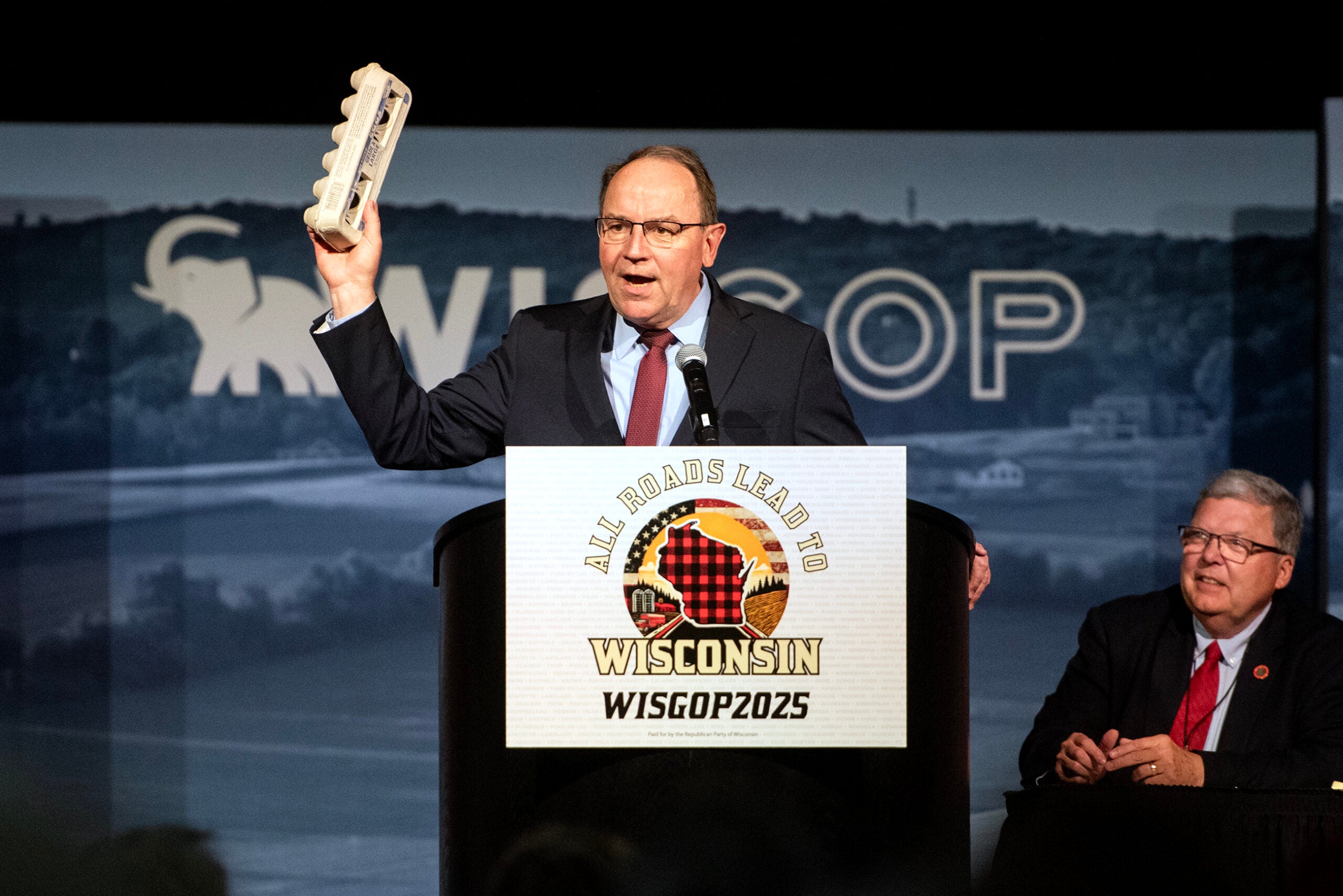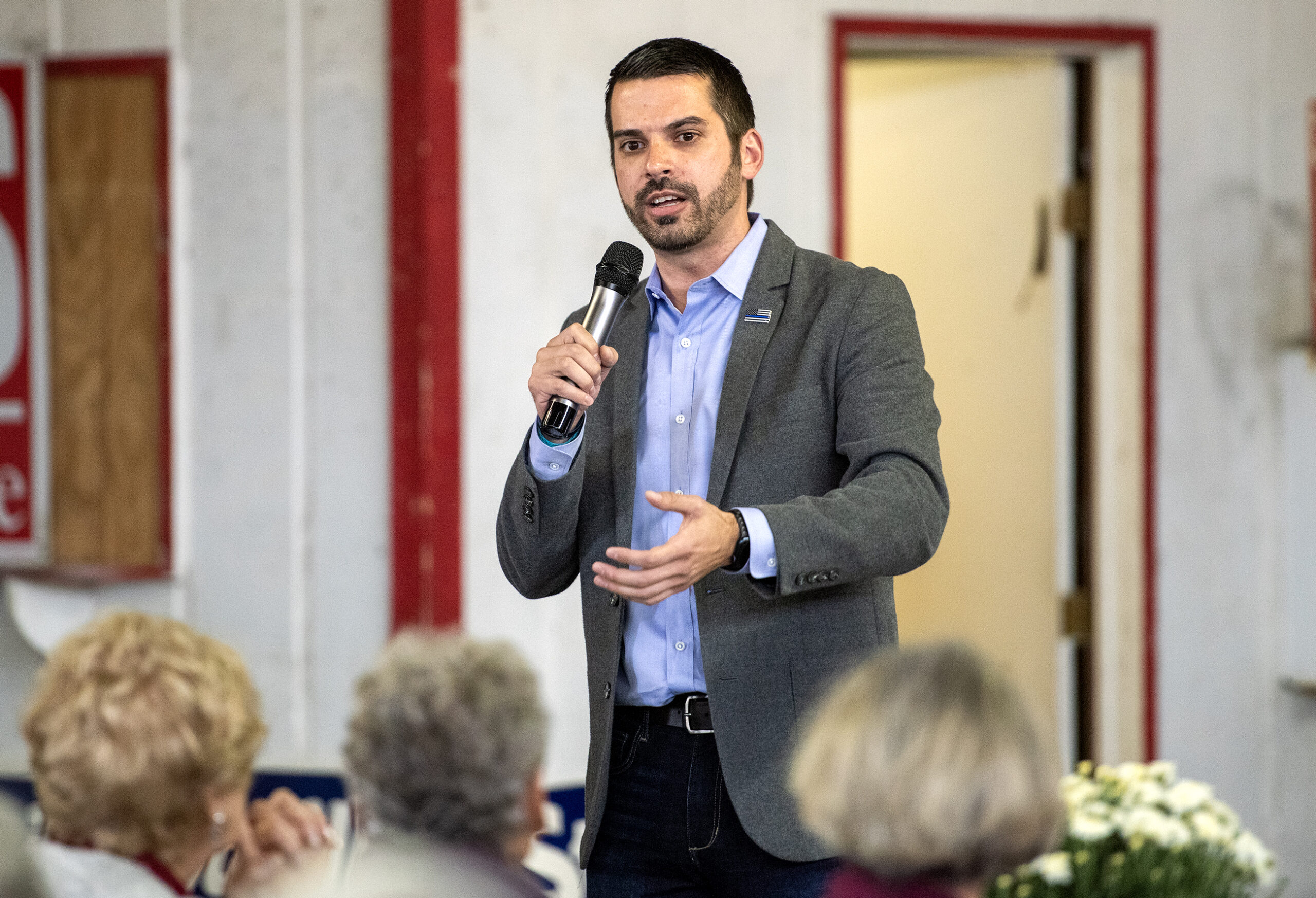While the main events of the Republican National Convention took place at the Fiserv Forum in Milwaukee, one of the hottest tickets of the week was a half-mile away at the Bradley Symphony Center.
On the second day of the July convention, the conservative activist group Moms for Liberty filled the 2,500-seat hall.
The national group was founded in 2021, largely to fight against masking in schools and other COVID-19 mitigation policies. As those issues faded, its chapters nationwide, including in Wisconsin, have been leading voices calling for the removal from school libraries of books with LGBTQ+ themes.
News with a little more humanity
WPR’s “Wisconsin Today” newsletter keeps you connected to the state you love without feeling overwhelmed. No paywall. No agenda. No corporate filter.
Before the group’s founders took the stage in Milwaukee, a video message from former President Donald Trump expressed support for the group and mocked what Moms for Liberty’s adversaries have said about it.
“You’re a hate group,” Trump said to laughter from the crowd. “You hate your children. You hate everyone.”
One month later, at the Democratic National Convention in Chicago, another moms group was present. But in a more subtle way.
Kate Duffy of the Wisconsin-based Motherhood for Good took to Instagram to interview prominent Democratic politicians.
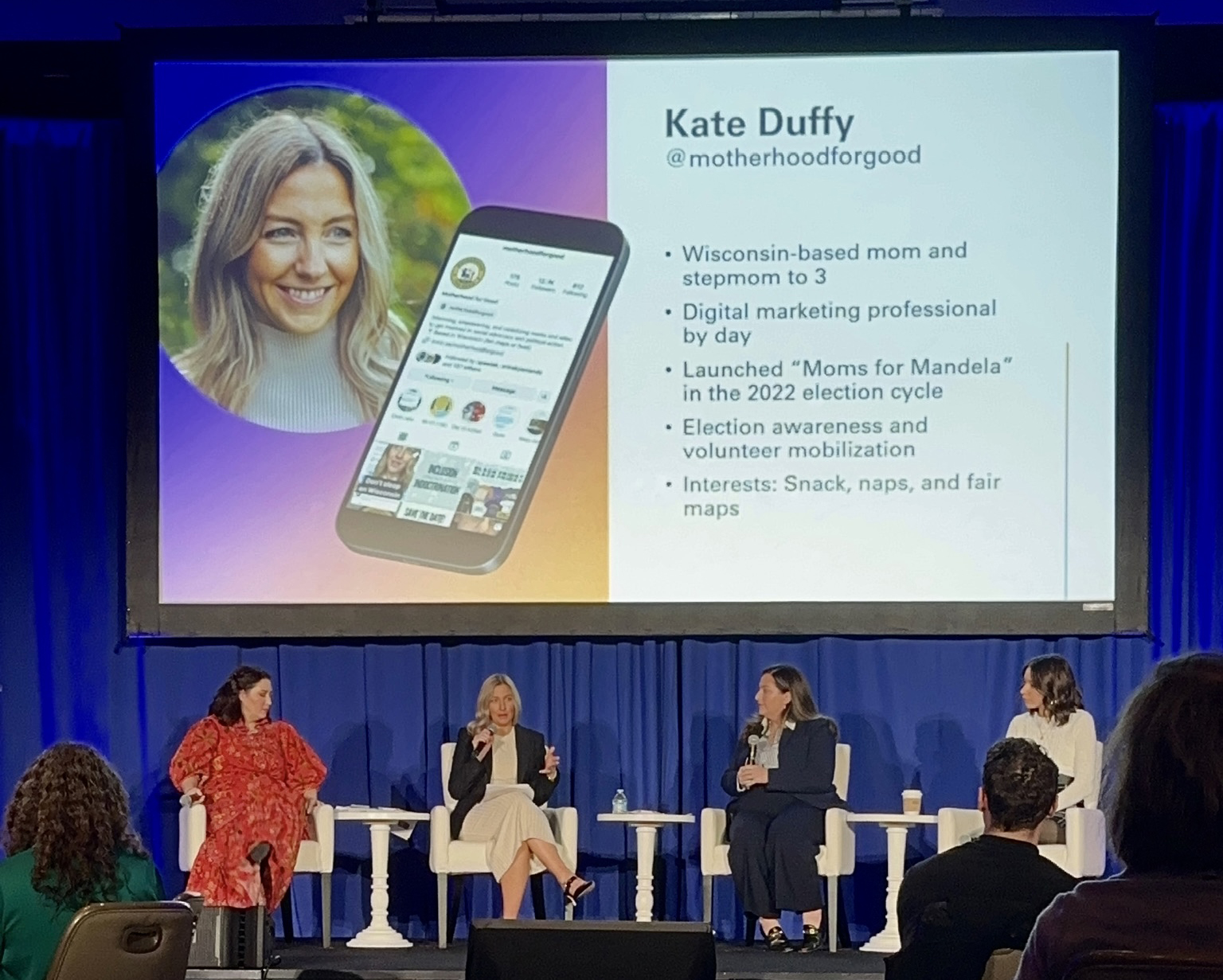
Since launching two years ago to support Democratic U.S. Senate candidate Mandela Barnes, the page has amassed more than 20,000 followers.
The liberal group does not see itself as a direct response to Moms for Liberty. But Duffy said Motherhood for Good is aiming to organize voters in Wisconsin to vote for Democratic presidential candidate Kamala Harris and is throwing its support behind several congressional races.
“We’re focusing on the women who have either not voted in the past, not paid attention, or always just voted with what their dad or husband talked about,” Duffy said. “They have a powerful voice. And here in Wisconsin, their voice is so incredibly impactful.”
Moms for Liberty and Motherhood for Good represent dramatically different political visions. But their focus is the same: the mostly white, mostly suburban mothers who both sides say could be the key to control of the White House.
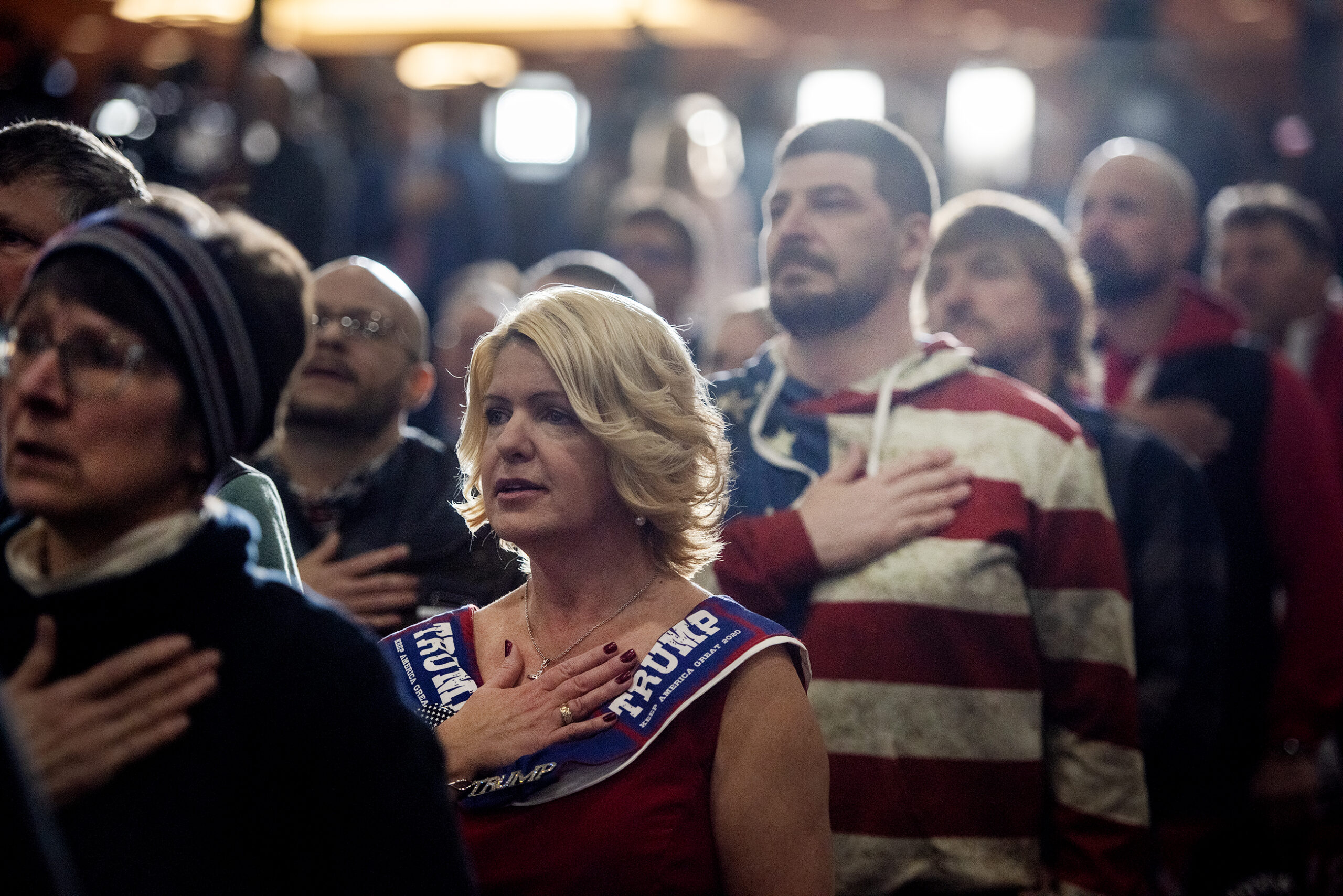
Moms are reliable voters, targeting them is not new
Targeting moms is not new to politics. As far back as 1996, the news media identified “soccer moms” as one of the demographics that helped re-elect former President Bill Clinton. After the Sept. 11 attacks, former President George W. Bush courted “security moms.” Candidates have also gone after the “Walmart moms,” and “Panera moms.”
These labels typically describe the same type of woman: an educated, white woman living in the suburbs. They are perceived to care most about health care, education and their families’ safety.
Duffy said her group is also targeting those women. And she believes Democrats have a new opening with this group in the wake of the U.S. Supreme Court’s 2022 decision in Dobbs v. Jackson Women’s Health Organization, which overturned federal abortion protections.
“I don’t think white women have ever voted over 50 percent for a Democratic candidate,” Duffy said. “But, we haven’t had a presidential election since the Dobbs decision.”
Kelly Dittmar, director of research at the Center for American Women and Politics at Rutgers University, said that for more than 40 years, women have been a critical group that have both outnumbered and outvoted men. That’s been the case in every presidential election since 1980.
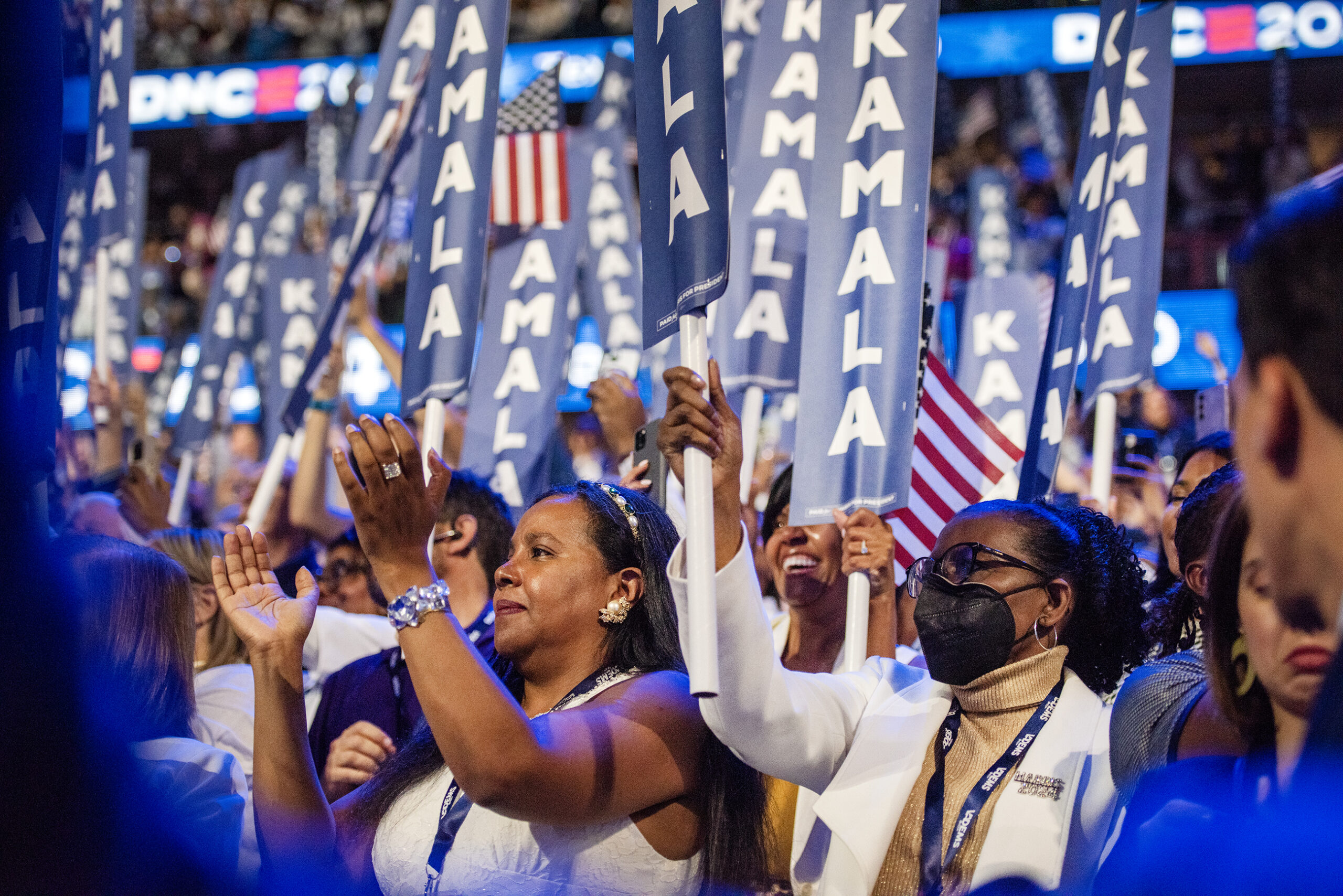
But Dittmar cautioned that women aren’t actually a “voting bloc.”
“Women are diverse in their voting preferences, and that’s especially true now,” Dittmar said. “I think you can see that in the activism and advocacy of women’s and mothers organizations that come to the table. Yes, (they are all) leveraging their identity as mothers, but to very different ends and with very different policy perspectives.”
Dittmar said different groups of women have influenced specific elections. For example, Black women have been the most reliable Democratic voters and voted at the highest rate of any race and gender group in 2008 and 2012, helping boost the Obama campaigns, Dittmar said.
In Wisconsin, women voters have been a reliable source for Democrats in the presidential contest since 2016.
Among women that year, 56 percent voted for Hilary Clinton with 83 percent of women of color voting for her, according to Democratic data firm Catalist.
President Joe Biden lost ground among women in Wisconsin in 2020, receiving 55 percent of the total women vote. The biggest drop came from women of color, where Biden received 77 percent of the vote in 2020, according to Catalist.
“I think that women will certainly be critical across different contests, but it’s important to also think about which women and on what contest and in what ways they may have an impact on the election, from turnout itself and motivating turnout to their actual votes on election day,” Dittmar said.
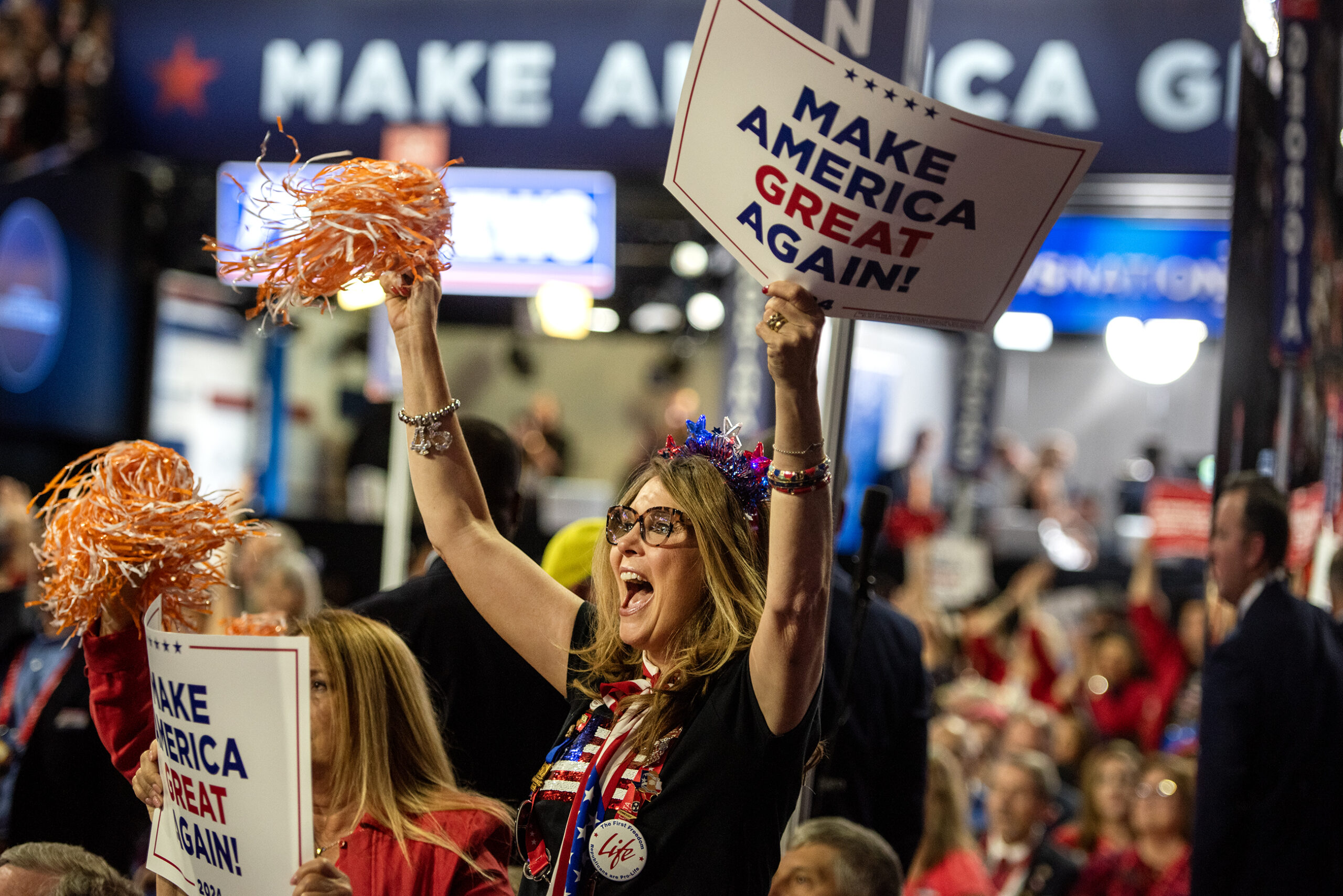
Moms for Liberty grew support during COVID backlash
Since its inception, Moms for Liberty has become influential in Republican politics. The group now boasts 130,000 members in 48 states. According to the group’s website, there are 14 chapters in Wisconsin.
Moms for Liberty says it welcomes everyone, including dads, grandparents, aunts and uncles who want to “stand up for parental rights at all levels of government.”
The group is currently suing the Biden administration over new Title IX regulations that include protections for transgender students.
Amber Schroeder is the vice chair of Moms for Liberty Ozaukee County. She said Wisconsin moms helped get Republican U.S. Sen. Ron Johnson elected. Three times.
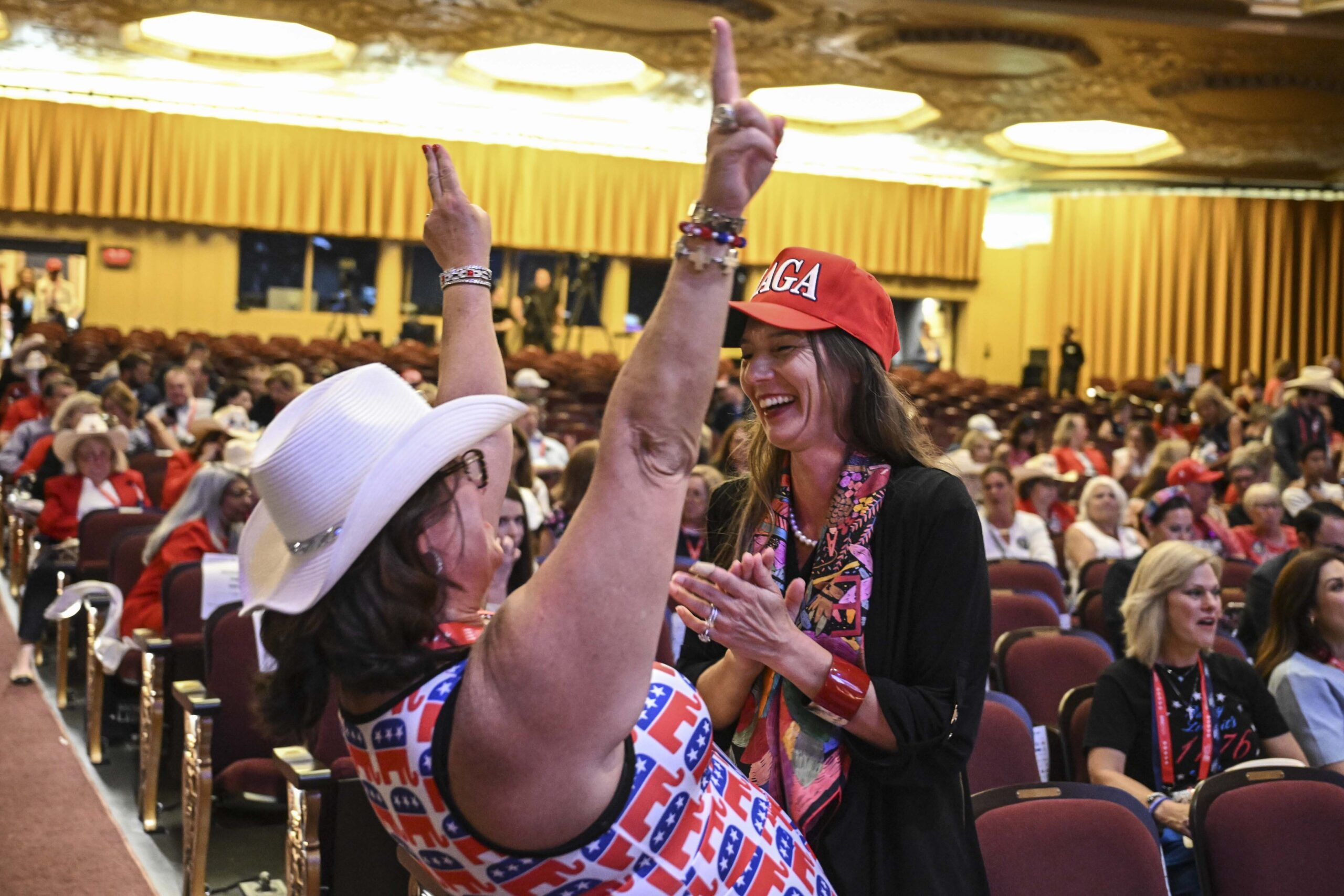
Schroeder said moms are fed up, awake and activated.
“People are coming out who maybe … haven’t really been affected or haven’t really spent too much time dealing with or thinking about politics,” Schroeder said. “(They’re) saying ‘Hold on a second, it’s affecting me, it’s affecting my life, it’s affecting my finances, it’s affecting my safety, and most importantly, it’s affecting my family.’ So they’re coming out and they’re voting. And we’re welcoming them with open arms.”
Four years ago, Schroeder said, she was a stay-at-home mom who barely knew who Wisconsin’s governor was.
But then COVID hit. And Schroeder didn’t like what she saw.
“We saw our children getting locked out of the classroom, we saw virtual learning happening, and we saw what a mess it was,” Schroeder said. “And it really opened up a lot of people’s eyes to what was actually going on within our school districts, and they had been taken over. Our school districts had been taken over.”
Schroeder and Scarlett Johnson, who heads the Ozaukee Moms for Liberty group, launched a recall campaign of four Mequon-Thiensville School Board members over that district’s COVID mitigation policies. The effort was unsuccessful, but they haven’t stopped working.
Duffy was working in marketing in 2022. Like Schroeder, she had also never been involved in politics.
But after the Dobbs decision and the devastating 2022 school shooting in Uvalde, Texas, Duffy was angry. She decided to channel that anger into politics.
Duffy teamed up with four other like-minded moms based in Waukesha, Madison, Wauwatosa and DePere and created Moms for Mandela on Instagram.

Barnes would go on to lose to Johnson by about 27,000 votes. After the loss, Duffy switched gears, and Instagram accounts.
Motherhood for Good now supports multiple Democratic candidates along with national and state bills.
Duffy says unlike Moms for Liberty, the group’s focus goes beyond education. She wants to rally moms to support a range of issues women care about, including gun control and abortion rights.
The group mainly works through messaging on Instagram, where Duffy said she tries to break down complex issues like gerrymandering, into creative, digestible posts.
They’ve also hosted events around the Barnes and Wisconsin Supreme Court Justice Janet Protasiewicz campaigns. But Duffy said she wants to reach women where they are, which is at home, with their families.
She’s not interested in flipping women who support the issues Moms for Liberty are behind.
“That’s not our cup of tea,” Duffy said. “Our goal is to build a network that spins a web and gets more women involved and showing up. Because we know that if we can get more women to show up and vote for the policies that are in favor of them and their families, it’s game over.”
Dittmar said she believes Moms for Liberty and Motherhood for Good are both innovative in their strategies. Both use social media and meet women where they are.
“These two groups, using a similar identity of mother but in different ways, are illustrative of diversity among women,” Dittmar said. “There’s high ideological diversity among women, even those who identify very closely with the identity of mother.”
Wisconsin Public Radio, © Copyright 2025, Board of Regents of the University of Wisconsin System and Wisconsin Educational Communications Board.

